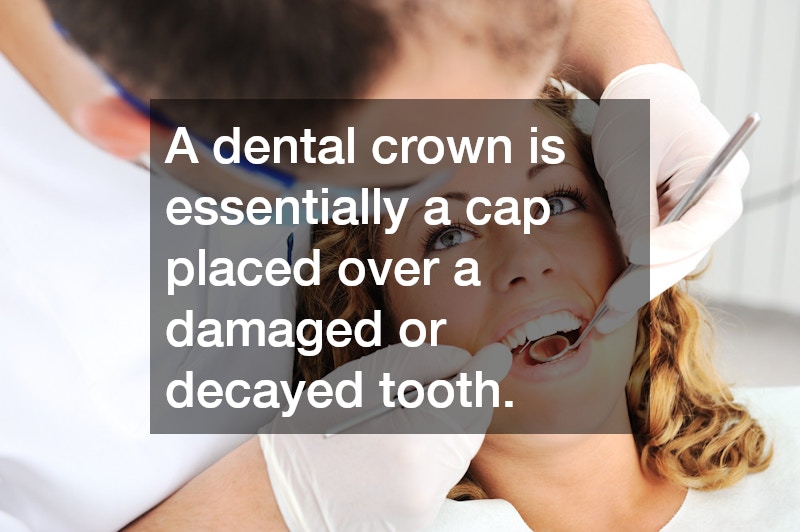What Are Dental Crowns and When Do You Need One?
What Are Dental Crowns and When Do You Need One?
Dental health is a crucial aspect of our overall well-being, yet it is often overlooked until a problem arises. One of the most common restorative procedures in dental care involves the use of dental crowns. These restorations play a vital role in helping maintain the functionality and aesthetics of your teeth.
But what exactly are dental crowns, and in what situations might you need one? This blog post will explore the purpose and benefits of dental crowns and will guide you through the circumstances that may necessitate their use.
Understanding Dental Crowns
A dental crown is essentially a cap placed over a damaged or decayed tooth. Its main function is to restore the tooth’s shape, size, strength, and appearance. Dental crowns are typically made from materials such as ceramic, porcelain, metal, or a combination thereof, which can be chosen based on durability and compatibility with your natural teeth. Crowning a tooth is a common practice when a large filling is no longer sufficient to repair the tooth. Particularly, for teeth that have undergone a root canal procedure, a crown is often essential to prevent further complications.
When is a Dental Crown Necessary?
There are several scenarios in which a dental crown might be recommended by your dentist. One of the most frequent reasons is to protect a weakened tooth from breaking, especially if it has become fragile due to previous fillings or decay. Additionally, crowns are used to restore already broken or severely worn-down teeth. If you have a tooth that is discolored or misshapen, a dental crown can also serve an aesthetic purpose, improving your smile’s overall appearance. Whether addressing functional or cosmetic concerns, the placement of a crown is a versatile solution applicable to a variety of dental issues.
The Procedure of Getting a Dental Crown
Receiving a dental crown typically requires two visits to the dentist. During the first visit, the dentist will examine and prepare the affected tooth. This involves reshaping and removing part of the outer surface of the tooth to accommodate the crown. An impression of the tooth is then taken, which is used to create a custom crown that fits perfectly with your other teeth. A temporary crown is usually placed to protect your tooth until your next visit. During the second appointment, the permanent crown is fitted and cemented into place, ensuring both comfort and strength.
The Benefits of Dental Crowns
There are numerous benefits to getting a dental crown, making it a popular choice for dental restoration. One significant advantage is its durability; with proper care, a dental crown can last between 5 to 15 years. They also provide a natural appearance, seamlessly blending with your existing teeth, especially when made from modern porcelain materials that mimic natural enamel. Importantly, dental crowns play a critical role in restoring the functionality of your tooth, enabling you to eat and speak with confidence. By reinforcing a damaged tooth, crowns can prevent further dental issues, thus enhancing oral health in the long term.
Post-Procedure Care and Maintenance
After receiving a dental crown, it’s essential to maintain good oral hygiene to ensure its longevity. Brushing twice a day and flossing daily are fundamental to preventing plaque buildup around the crown. Regular dental check-ups are equally important for monitoring the health of your crown and the surrounding teeth. While crowns are stable, you should avoid habits like clenching your jaw or chewing hard objects, as these can cause wear or even breakage. With proper maintenance, your dental crown can serve you well, preserving both the functionality and appearance of your teeth for years to come.
Conclusion
In summary, dental crowns are a versatile and highly effective solution for a range of dental problems, from aesthetic issues to structural damage. Understanding when and why you might need a crown can help you make informed decisions about your oral health. By restoring the shape, strength, and function of damaged teeth, crowns not only improve the appearance of your smile but also contribute significantly to long-term dental health. If you suspect you might benefit from a dental crown, consult with your dentist to explore the options available, ensuring the best outcome for your dental needs.




